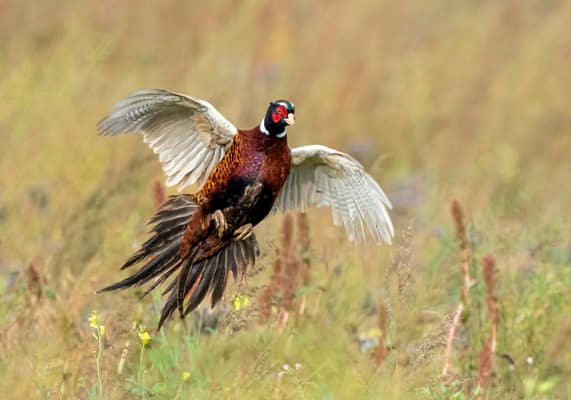Bussiness
England hit with the most serious outbreak of bird flu – London Business News | Londonlovesbusiness.com

The Animal and Plant Health Authority (Apha) has said England has the most serious outbreak of bird flu.
Apha said that bird flu is in pheasants and they have raised serious concerns over the lack of restrictions to rear them.
They found 20 of the non-native birds were infected with the disease and bird populations are being decimated as a result, The Guardian reports.
Dr Ruth Tingay, who runs the Raptor Persecution blog, said, “Due to the idiotic legal status of pheasants, referred to as Schrödinger’s pheasant by [the campaign group] Wild Justice, it is understood that because these pheasants have been released and are thus currently considered ‘wild’ (ie no longer dependent on a gamekeeper for food/water/shelter), no [bird flu] control zones have been put in place to help stop the disease from spreading.
“It’d be good to think that the shoot concerned has made the sensible decision to close the shoot for the rest of the season to help stop the disease from spreading via birds fleeing from the beaters and guns, via gun dogs, via shooters’ boots and vehicle tyres etc. But given there’s no legal obligation, what’s the betting the shoot is continuing?”
Experts are warning the disease could spread to native birds in the UK as a result of the large-scale release of the pheasants.
A spokesperson for the RSPB said, “Pheasants are highly susceptible to highly pathogenic avian influenza, and the release of large numbers of these birds into the environment presents a risk of increasing transmission.
“The recent mass-mortality event caused by the H5N5 sub-type in pheasants, which has otherwise only been detected in low numbers of seabirds and raptors in the UK, highlights the risk.
“The RSPB is calling for governments across the UK to license the release of non-native gamebirds and mallards due to their susceptibility to the disease, underpinned by a statutory code of practice, with mandatory reporting of movements and releases.”










